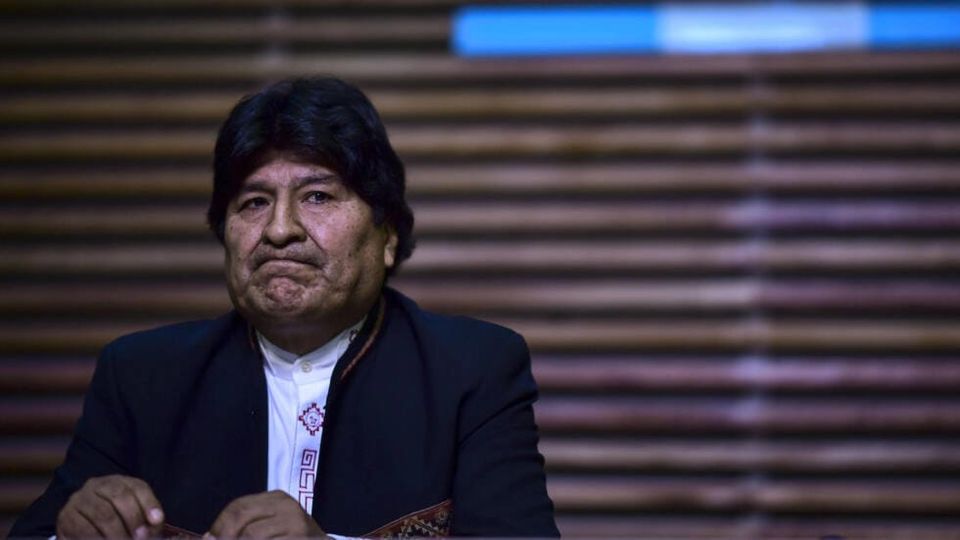
Bolivia:court annuls indefinite reelection and leaves Evo Morales out of the 2025 elections
The Constitutional Court of Bolivia issued a ruling that annuls the figure of indefinite reelection, which implies the disqualification of former president Evo Morales as a candidate for the Presidency in 2025. This court established that "indefinite reelection does not exist and that it is not a human right ", an argument that allowed Morales to run for the 2019 elections. Several sectors celebrated the court's decision this Saturday, December 30, especially the former president's detractors. While Morales attributes it to a "black plan" of the current Government.
The Plurinational Constitutional Court (TCP) of Bolivia decreed on Friday, December 29, that "indefinite reelection does not exist and is not a human right," which implies the disqualification of former president Evo Morales (2006-2019) from running in the elections. of 2025.
The ruling determines that in Bolivia the president and vice president can only be elected and serve a mandate for two periods, whether continuous or discontinuous.
"The restriction on the possibility of indefinite re-nomination is an ideal measure to ensure that a person does not remain in power," states the 82-page document published this Saturday, December 30.
The new ruling reverses another issued in 2017 by that same court, the highest ranking in constitutional consultations, which established that re-election was a "human right" and allowed Morales to run in 2019.
However, the TCP has now invoked a resolution of the Inter-American Court of Human Rights issued in 2021, which refutes that argument and establishes that indefinite presidential reelection is not a human right. The new ruling is final.
With this ruling, Evo Morales is disqualified from new elections since he has governed the country for three periods, 2006-2009, 2009-2014 and 2014-2019. Immediately the court's ruling was announced, Morales referred to a "black plan" of the current Government and described the decision as "political."
And the decision takes place in the midst of growing disputes between Morales and his former ally and current president of the country, Luis Arce, who, in addition, was Minister of Economy for almost the entire mandate of the indigenous leader.
This year a sector of the ruling party Movement towards Socialism (MAS, left) elected Morales as the sole candidate for 2025; However, the decision was questioned by the Electoral Tribunal, which indicated that there were irregularities in the proclamation process and ordered its repetition.
For constitutional lawyer María Renée Soruco, from the San Pablo Catholic University, "if a reelection was allowed previously, it was violating the Constitution itself."
"It is a late sentence, this is not about Evo Morales, it is about the defense of the rule of law," Soruco added.
Evo Morales resigned from the Presidency in 2019 amid a social crisis and protests over alleged electoral fraud. Upon leaving the country, Jeanine Añez took office, who today faces trials and sentences for an alleged coup d'état and who celebrated the announcement of the Constitutional Court this Saturday.
Along the same lines, the leader of the opposition bench Carlos Mesa pointed out: "Evo Morales and (then vice president Álvaro) García Linera violated the Constitution (...) with the complicity of the TCP."
Font: France 24 en español (con información de AFP y EFE)
